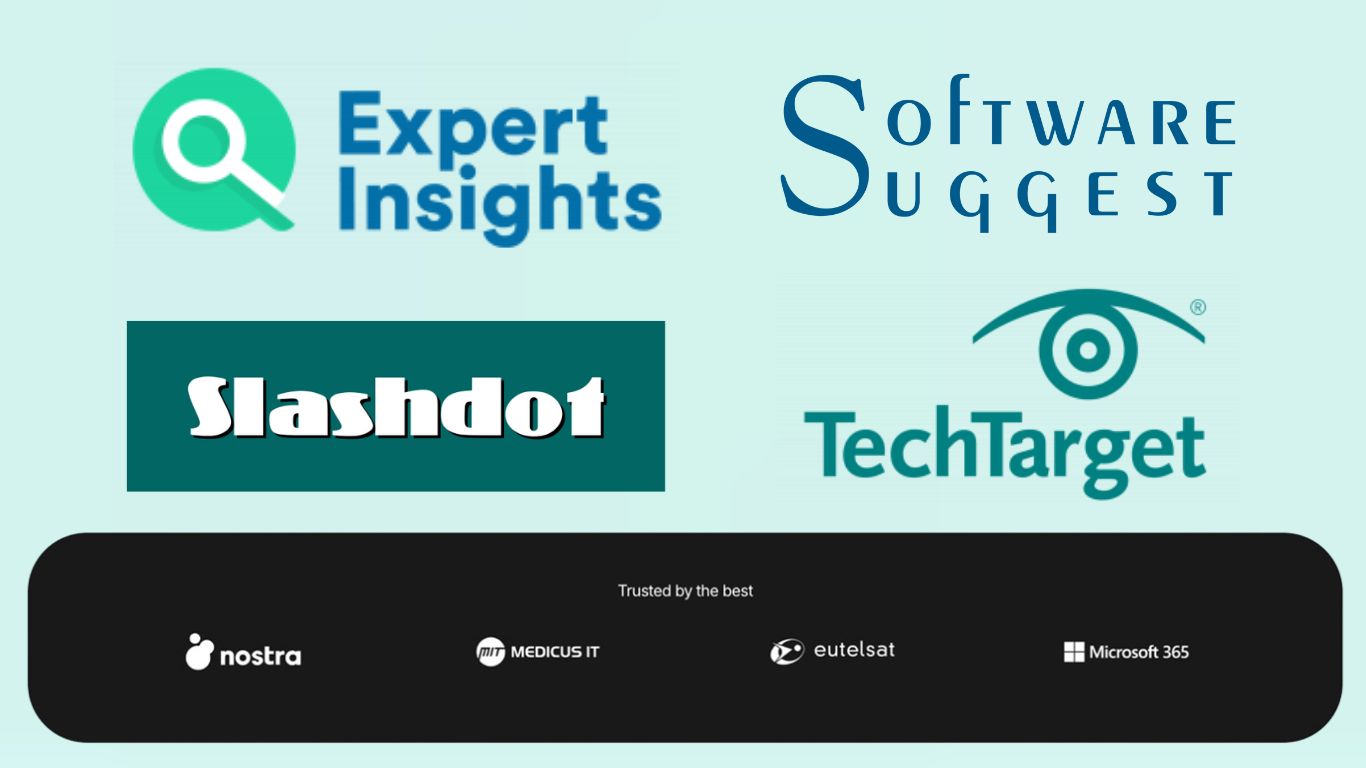Emails often contain sensitive and proprietary information. As such, they are a target for cybercriminals intent on using it to extract this data. Also, emails are prone to accidental data exposure. Research has shown that 83% of data breaches start with an email. Another study found that 93% of organizations experienced a data breach caused by a compromised outbound email. Whatever the cause of an email-initiated breach, encrypting emails can prevent accidents and malicious attacks.
There are many methods and solutions available to encrypt emails. Here, TitanHQ explores Barracuda Email Encryption and compares its features and pricing with TitanHQ EncryptTitan.
What is Email Encryption, and Why is it Important?
Email is a communication channel that is going nowhere. Despite instant messaging and social media, email use continues to climb. The number of emails sent and received daily is expected to increase to 392.5 billion by 2025.
Email is the primary method of communicating inside and outside a business. The volume of emails and the data type in this communication channel make email vulnerable to attack and accidental data exposure. Hackers target both sensitive company data and personal data. They can use the latter to commit fraud, steal ID, and phish employees.
Accidental data exposure is the other side of the email vulnerability coin. For example, a Denmark data protection authority study found that the most common GDPR breach was caused by the correct information going to the wrong recipient.
Email encryption prevents email-borne data from being exposed accidentally or through a malicious attack. Encryption software changes the email content and any attachments from plain text to ciphertext, rendering them unreadable to anyone other than the intended, authenticated recipient.
Did You Know?
breached records in 2023
of employees share passwords
estimated cost of cybercrime globally
knowingly sent private information in an email
Core Features of Email Encryption
Not all email encryption solutions are the same, but certain core features are fundamental to the effectiveness of the encryption.
Cloud-Based SaaS
Modern email encryption solutions should be cloud-based. This ensures scalability and ease of deployment and management. Cloud-based email encryption solutions provide a centralized console to allow administrators to configure security rules and manage the service.
End-to-End Encryption (During Email Transit)
End-to-end encryption (E2EE) is a fundamental feature of email encryption. Emails are encrypted on the sender's device and then decrypted when opened by an authenticated recipient—emails are protected during transmission. Public key encryption (or asymmetric encryption) is used to perform the encryption. Internet protocols, like TLS (Transport Layer Security), underpin the secure transfer of encrypted messages. Emails and any attachments should be encrypted while stored, for example, in an email archive.
Easy to Use to Reduce Human Error
Email encryption must be easy to ensure that human error, like forgetting to encrypt an email, doesn't happen. An option that some email encryption solutions offer is deep integration with email clients, like Outlook 365. For example, an Outlook 365 plug-in makes email encryption easy by providing a click-to-send encrypted button.
Data Leak (Loss) Prevention (DLP)
Some email encryption solutions, like EncryptTitan, provide DLP capability. Data leak prevention or data loss prevention (DLP) enforces security controls to protect data from being leaked, corrupted, damaged, deleted, stolen, or corrupted. Administrators apply protection policies, triggered using rules, to control data as it is shared via email. The rules are typically defined using keywords and attachment type and should be granular enough to control data leaks based on contacts and domains.
Access and Authorization of Recipients
Encryption should not prevent ease of communication. Therefore, an email encryption solution must make receiving encrypted emails straightforward while maintaining security. Email encryption solutions use several methods to ease the recipient's access to encrypted emails. Examples include using web portals to hold the emails, encrypted PDF versions of the emails, or S/MIME, which layers authentication atop the encrypted email to control access.
Get Started with TitanHQ's Email Encryption Solution.
At a Glance: Barracuda Email Encryption vs TitanHQ's EncryptTitan
Feature
End-to-End Encryption (E2EE)
Barracuda Email Encryption
Yes. AES 256 standard. TLS for transit
TitanHQ EncryptTitan
Yes. AES 256 standard. TLS for transit.
Feature
Enforce encryption policies based on granular rules.
Barracuda Email Encryption
Yes
TitanHQ EncryptTitan
Yes
Feature
Microsoft Outlook 365 integration
Barracuda Email Encryption
Yes, with UI plug-in
TitanHQ EncryptTitan
Yes, with UI plug-in
Feature
Generates reports
Barracuda Email Encryption
Yes, central console
TitanHQ EncryptTitan
Yes, central console
Feature
Email recipient: the method used to control access
Barracuda Email Encryption
Web Portal: The recipient is taken to the Barracuda Message Center after receiving an encrypted email. They must input a password to access the email.
TitanHQ EncryptTitan
TLS: In this scenario, the recipient
Feature
Data leak prevention?
Barracuda Email Encryption
Policies automatically encrypt, quarantine, or block certain outbound emails based on their content, sender, or recipient.
TitanHQ EncryptTitan
Yes, protection policies automate email encryption. Emails that trigger a rule, like those containing a specific keyword, are then blocked, quarantined, and encrypted.
Feature
Are you compliant with regulations?
Barracuda Email Encryption
Yes, it can help your organization meet HIPAA and GDPR regulations.
TitanHQ EncryptTitan
Yes, it can help your organization meet HIPAA and GDPR regulations.
Feature
Cloud-based service
Barracuda Email Encryption
Yes
TitanHQ EncryptTitan
Yes
Feature
Built for delivery by an MSP
Barracuda Email Encryption
Yes, via BarracudaMSP
TitanHQ EncryptTitan
Yes, it was built specifically to be delivered using an MSP model. It can be rebranded. Enhanced marketing support is part of the MSP plan.
Feature
Is support included in the cost of the package?
Barracuda Email Encryption
Additional cost
TitanHQ EncryptTitan
Included in the license cost
Feature
Free trial version
Barracuda Email Encryption
Yes, 14-day free trial.
TitanHQ EncryptTitan
Yes, 14-day free trial.
Feature
Capterra review
Barracuda Email Encryption
4.5
TitanHQ EncryptTitan
4.7
Features of Barracuda Email Encryption
Barracuda email encryption is included in Barracuda Essentials. It is a cloud-based solution. However, an encryption appliance (hardware) version is available for companies that wish to use hardware encryption.
The Email Encryption Provided by Barracuda Includes the Following Core Features:
Email Encryption
Barracuda email encryption secures email by using E2EE encryption. Messages are sent via the Barracuda Message Center. Recipients can securely retrieve a message by navigating the portal and entering a password. Transport Layer Security (TLS) and AES 256-bit encryption are used for message encryption during transit and at rest. Manual and automated encryption via policies is offered.
Data Loss Prevention (DLP)
Barracuda DLP is applied to outbound emails to ensure sensitive data only leaves an organization if authorized. The outbound email filtering used by Barracuda also blocks outbound spam and viruses. By ensuring outbound emails are spam-free and not infected by viruses, the company mail server IP addresses and domains will not be added to spam-block lists. DLP options allow administrators to create and enforce content policies that are then used to stop sensitive data from leaving the company network via email. Policies are used to automatically encrypt, quarantine, or block outbound emails that trigger a content policy rule.
Features of TitanHQ EncryptTitan
TitanHQ EncryptTitan is a cloud-based email encryption solution ideal for delivery via an MSP. Deployment, management, and configuration are all performed centrally to enforce encryption and mitigate human error.
Email Encryption
EncryptTitan uses E2EE to protect emails from sender to receiver and store them in storage during the email lifecycle. EncryptTitan uses Transport Layer Security (TLS) and AES 256-bit encryption to secure messages during transit and at rest. Manual and automated encryption via policies is deployed to provide use case-appropriate activation of email encryption - automation occurs when policy rules are triggered, e.g., by certain keywords. Recipients of encrypted emails have three choices when opening an encrypted email:
TLS Verify: TLS Verify meets state and federal requirements for sending private information over email. This method is seamless as it does not require the recipient to take additional steps to view the email. If the recipient's web server supports TLS 1.2 or 1.3, the message will be decrypted by the web server. This method is an option; additional authentication can be enforced if a Compliance or IT Officer requires it. If TLS is not supported, EncryptTitan defaults to the next available delivery method.
Easy Secure: Easy Secure is a passwordless delivery method. Easy-Secure messages are stored on a secure portal utilizing "data-at-rest encryption." Easy Secure can be configured to allow secure messages to be opened with a click of the unique message link or by requiring the unique link and a time-based one-time passcode (TOTP) that can be delivered over email, SMS, or OTOP.
Secure Portal: The Secure Portal delivery method stores emails on a secure portal. An encrypted email recipient is prompted to log in to the Secure Portal and enter a username and password to access the email. Multi-factor authentication (MFA) can be used to add layers of security as needed. Encrypted message recipients can reply securely to the sender of an encrypted message directly from the Secure Portal. The Secure Portal supports message auditing, read receipts, and message recall.
Pricing
Barracuda email encryption comes bundled with Barracuda Essentials pricing for standard product features. Notably, TitanHQ offers flexible monthly pricing options to suit your specific needs and budget.
Barracuda Email Encryption
25-user minimum purchase: $66.50 per month or $798 per year.
EncryptTitan
25 users: $53.63 per month or $585 per year.
Barracuda Email Encryption
Support charges may be in addition to the price shown above.
EncryptTitan
TitanHQ technical support is integrated into the pricing structure. Customers have access to a dedicated support team without any additional charges.
* Prices are valid as of 24/8/2024
Get Started with TitanHQ's Email Encryption Solution.
Why Companies Choose EncryptTitan

What Do Actual Users Say About Barracuda Email Encryption and EncryptTitan?
Barracuda Email Encryption
Pros
“It is an easy setup product that stops most threats right away. You get complete insight into why an email was stopped or passed through. During the several years we worked with it, we saw a great improvement in speed for management and to stop spam". [1]
Cons
“The lack of detailed, usable information about why a valid message was blocked needs significant improvement. We find ourselves looking at the spam score details, it
Pros
“This appliance has all the bells and whistles of most spam solutions. However, It also has an abundance of advanced in-depth features.” [2]
Cons
“The price to buy in, I feel, could be a bit lower. If you go the appliance route, you are looking around a 3 - 10k buy-in.”
Pros
“can set it up to encrypt automatically, or the user can use an icon in Outlook to easily encrypt. Decent interface for the recipient to get and access the encrypted email message.” [3]
Cons
I like the product, but according to my Barracuda "renewal rep," the user minimum has increased from 10 to 25. Needless to say, that changes the pricing from expensive to cost prohibitive for my organization.” [4]
EncryptTitan
Pros
“I am very satisfied with EncryptTitan Email Encryption. It is easy to use, secure, and reliable. I have been using it for a few months and have not had any issues. I highly recommend it to anyone looking for a secure way to send and receive emails.” [5]
Cons
“Initial Integration and configuration can be challenging if there is a lack of access/control to DNS for domain[s].” [6]
Pros
“TitanHQ
Cons
“Set-up was a tad more cumbersome than anticipated, but it may just have been me.” [8]
Pros
“Integration was easy, and the members assigned to assist us with the transition were great to work with and could get any question answered.”[9]
Cons
“Encrypt Titan was just slightly confusing to roll out as there
- [1] Gartner review, 2] Softwareadvice, [3] Reddit, [4] Reddit, [5] Channel program, [6] Softwareadvice, [7] Review, [8] Softwareadvice, [9] Getapp, [10] Softwareadvice
Get Started with EncryptTitan
Book a FREE EncryptTitan demo and learn how EncryptTitan can protect your organization from advanced email security risks. Speak with one of our product experts to see exactly how EncryptTitan works without any commitment.

Susan Morrow
- DATA PROTECTION
- EMAIL ENCRYPTION
Talk to our Team today

Frequently Asked Questions (FAQs)
Barracuda email encryption is a cloud-based solution that encrypts emails during rest and in transit. Barracuda-encrypted email recipients decrypt and read/reply to emails via a secure portal.
EncryptTitan is a cost-effective cloud-based email encryption solution that can be delivered via an MSP. Depending on the use case, recipients of an encrypted email have several options for accessing and decrypting the email. For example, using TLS, authenticated recipients can seamlessly and securely decrypt emails.
End-to-end encryption (E2EE) is a holistic encryption process that uses the AES 256 encryption algorithm and the TLS protocol to ensure that emails remain encrypted during transit and at rest. E2EE ensures that only authenticated persons can access and decrypt an encrypted email, thus preventing attackers and unauthorized persons from accessing its contents.
When receiving a Barracuda encrypted email, a recipient navigates to the Barracuda Message Center. After entering the correct password and any required MFA, the user can decrypt and read the email.
When receiving an encrypted email via EncryptTitan, the recipient has one of three ways to access and decrypt the email. The choice depends on the circumstances of delivery. For example, if the recipient's web server supports TLS 1.2 or 1.3, decryption will be seamless. The other two methods include a secure web portal.
Many regulations require that emails containing sensitive data are correctly secured. Some regulations that require email encryption under some circumstances include GDPR, US government regulations FedRAMP and CMMC, HIPAA, and FINRA.
